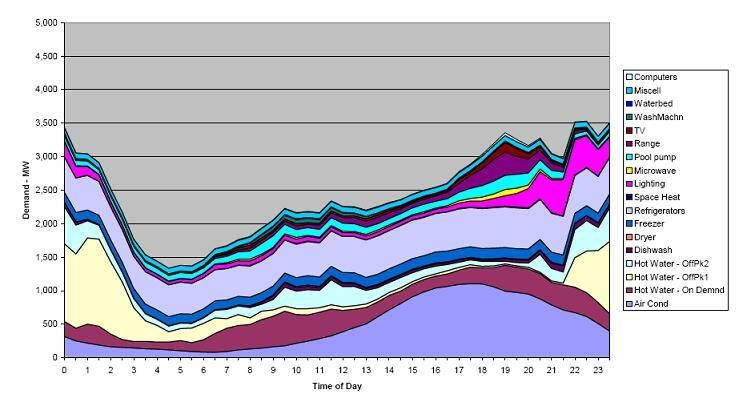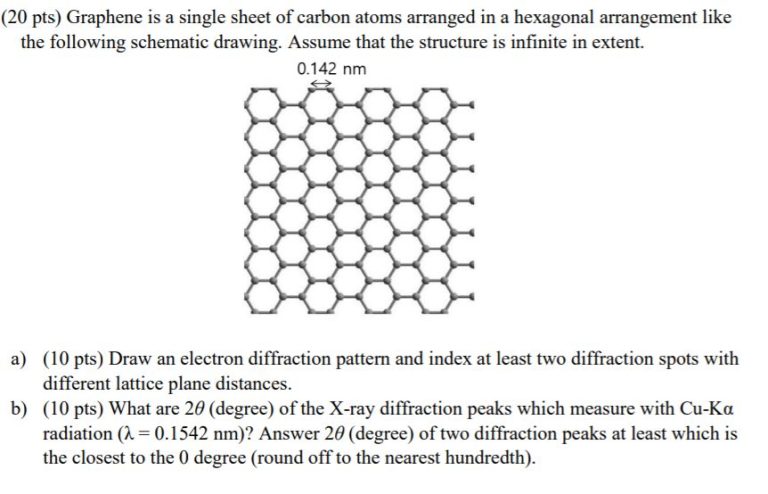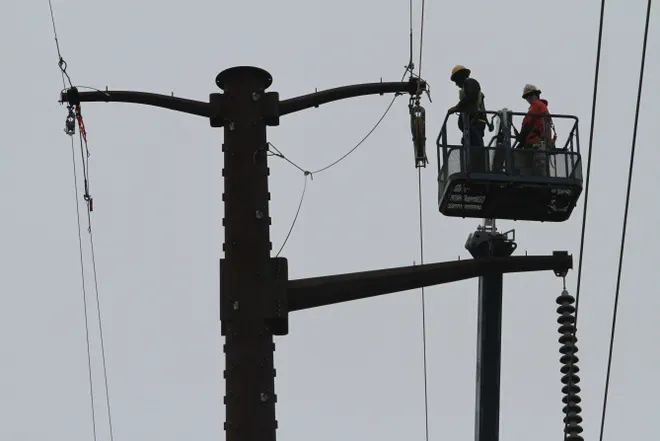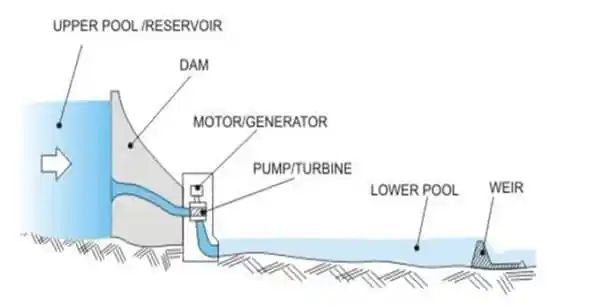What Is A Kwh Equivalent To?
What is a kWh?
A kilowatt hour (kWh) is a unit of energy that represents the amount of electricity used by a device over the course of one hour at a constant rate of one kilowatt.
More specifically, a kWh is equal to the amount of energy consumed when a device draws 1,000 watts (1 kilowatt) of power over the period of one hour. Since power is measured in watts and time in hours, the kWh is derived by multiplying the kilowatts (rate of energy transfer) by the hours.
The kWh is commonly used for billing electricity usage, as utility companies measure customers’ consumption in kilowatt hours during a billing cycle. It allows easy comparison of electricity usage between devices and time periods.
kWh Examples
Here are some examples of how much energy in kWh common household appliances use:
- Refrigerator – An ENERGY STAR certified 20 cubic foot refrigerator uses around 500 kWh per year.
- Incandescent light bulb – A typical 60W incandescent light bulb uses around 43 kWh if left on for 1000 hours.
- LED light bulb – An equivalent 9W LED light bulb would only use around 9 kWh in that same 1000 hours.
- Electric oven – Using an electric oven for 1 hour can use around 1.5 kWh depending on its wattage.
- Clothes dryer – An average electric clothes dryer uses around 3-5 kWh per use.
- Window air conditioner – A small 5000 BTU window AC uses about 1440 kWh if run 8 hours per day for 3 months.
- Space heater – A 1500W space heater run for 8 hours uses 12 kWh.
As you can see, appliances with heating elements like ovens, dryers and heaters use a significant amount of energy in kWh. Switching to more energy efficient models can reduce kWh usage.
kWh vs Other Energy Units
The kilowatt hour (kWh) is a unit of energy commonly used to measure electricity usage. It represents the amount of energy equivalent to a power consumption of 1,000 watts for one hour. Here’s how the kWh compares to some other common energy units:
Joules – The joule is the standard unit of energy in the International System of Units (SI). One kWh is equal to 3,600,000 joules (3.6 megajoules).
British Thermal Units (BTUs) – The BTU is a traditional unit of energy often used for heating systems. One kWh is equivalent to 3,412 BTUs.
Therms – A therm is a unit of heat energy equal to 100,000 BTUs. One kWh is approximately equivalent to 0.03412 therms.
Calories – A calorie is the amount of energy needed to raise the temperature of 1 gram of water by 1°C. One kWh is equal to 859.8 calories.
Horsepower Hours – One horsepower hour is equivalent to 2,545 BTUs. So one kWh is equal to about 1.34 horsepower hours.
So in summary, the kWh is a larger unit than joules, calories, or BTUs, but smaller than therms or horsepower hours. Knowing the conversions allows you to compare energy usage across different units.
kWh Cost
The cost per kWh for residential electricity can vary significantly depending on your location and electricity provider. In the United States, the average residential price for electricity is around 12-15 cents per kWh. However, prices range from under 10 cents/kWh in some states like Louisiana and Idaho, to over 20 cents/kWh in states like California and Hawaii where electricity costs are higher.
There are a few key factors that impact the electricity rate you pay per kWh:
- Location – Electricity prices tend to be higher in some regions than others.
- Provider – Competitive electricity markets allow you to shop for better rates from retail providers.
- Time of use – Some utilities charge higher rates during peak demand hours.
- Season – Prices can fluctuate based on energy demand during summer and winter months.
Knowing your average per kWh cost is important for estimating your electricity bills and comparing rates when shopping for service. Tracking your kWh usage and being aware of pricing factors in your area can help you better understand and manage your electricity costs.
kWh Usage
The average US home uses about 900 kWh per month. This can vary greatly depending on the size of your home, how energy efficient your appliances are, and your geographical location. Homes in hot southern states tend to use more electricity for air conditioning in the summer, while homes in cold northern states use more electricity for heating in the winter.
There are several ways you can reduce your kWh usage and lower your electricity bills:
- Replace old appliances with ENERGY STAR certified models
- Install a programmable thermostat and set it to an energy saving schedule
- Seal air leaks around windows and doors to improve insulation
- Switch to LED light bulbs
- Wash clothes in cold water and air dry when possible
- Unplug devices when not in use to avoid phantom load
- Replace HVAC air filters regularly
With some simple changes, most homes can reduce their kWh usage by 10-20%. This saves money while also reducing your environmental impact.
kWh to Watts Conversion
A kWh is a unit of energy, while a watt is a unit of power. To convert between these units, you need to account for the time component.
Specifically, 1 kWh is equal to the energy consumed at a rate of 1,000 watts for 1 hour. We can express this relationship mathematically as:
1 kWh = 1,000 watts x 1 hour
1 kWh = 1,000 watt-hours
To convert kWh to watts, you simply need to divide the kWh value by the number of hours. For example:
5 kWh / 1 hour = 5,000 watts
0.5 kWh / 0.5 hours = 1,000 watts

So in summary, to convert kWh to watts, divide the kWh value by the number of hours to get the equivalent watts. This conversion allows you to understand power usage (watts) based on energy consumption over time (kWh).
kWh to Kilojoules Conversion
A kilowatt-hour (kWh) is a unit of energy, while a kilojoule (kJ) is a unit of work or heat. To convert between these units, we need to understand their definitions and relationship.
A kWh represents the amount of energy consumed by a power of 1 kilowatt for 1 hour. A kilowatt (kW) is equal to 1000 watts. So 1 kWh = 1000 watts x 1 hour = 1000 watt-hours.
A kilojoule represents the amount of energy required to produce 1 watt of power for 1 second. Since 1 watt-second = 1 joule, and 1 kilojoule = 1000 joules, we can derive:
1 kWh = 1000 watts x 3600 seconds
= 3,600,000 watt-seconds
= 3,600,000 joules
= 3,600 kJ
So in summary, 1 kWh is equivalent to 3,600 kilojoules. To convert kWh to kJ, you simply multiply the kWh value by 3,600. For example, 5 kWh x 3,600 = 18,000 kJ.
kWh to BTUs
kWh stands for kilowatt-hour, and BTU stands for British thermal unit. Both are units used to measure energy, but they are different types of units.
kWh measures electric energy, while BTU measures thermal energy. To convert between these two units, we need to know their relationship.
1 kWh = 3,412 BTU
So to convert kWh to BTUs, we simply multiply the kWh value by 3,412. For example:
- 1 kWh x 3,412 = 3,412 BTU
- 10 kWh x 3,412 = 34,120 BTU
This conversion allows us to determine the thermal energy in BTUs equivalent to a certain amount of electric energy in kWh. It’s useful for understanding energy usage across different applications.
kWh Meters
kWh meters, also known as kilowatt hour meters, are devices used to measure electrical energy usage in kilowatt hours. There are a few different types of kWh meters:
Electromechanical kWh Meters
These are the traditional style meters with spinning metal discs that measure usage. They contain coils and magnets that spin at a speed proportional to the amount of electrical current flowing through the meter. Counters on the dials tabulate the revolutions to calculate kilowatt hour usage over time.
Solid State kWh Meters
Newer solid state meters use integrated circuits instead of mechanical parts to measure usage. They directly measure the voltage and current, then use calculations to determine kilowatt hours used. Solid state meters have no moving parts and are more compact.
Smart Meters
Smart meters are digitally connected and can transmit usage data. This allows for remote reading of the meter data instead of manual in-person meter checks. Smart meters can provide usage statistics, detect outages, and even communicate rate pricing information. They enable more detailed tracking of energy consumption.
kWh Billing
A kWh (kilowatt hour) is a unit of energy used by utility companies to bill customers for electricity usage. The kWh usage that shows up on your utility bill is calculated based on the amount of electricity your home or business consumes over a billing period, usually one month.
To determine your kWh usage, your utility company installs a meter that measures and records how much electricity you use. The meter readings at the beginning and end of the billing period allow the utility to calculate your total energy consumption in kWh for that month.
Utility rates are often expressed as cents per kWh. By multiplying your kWh usage by the utility rate, your total electricity costs for the month can be calculated. For example, if you used 500 kWh of electricity and your utility rate is 15 cents/kWh, your total bill for the month would be:
500 kWh x $0.15/kWh = $75
Understanding how to read your utility bill and track your home’s kWh usage can help you better manage electricity costs and identify opportunities to conserve energy and save money over time.





